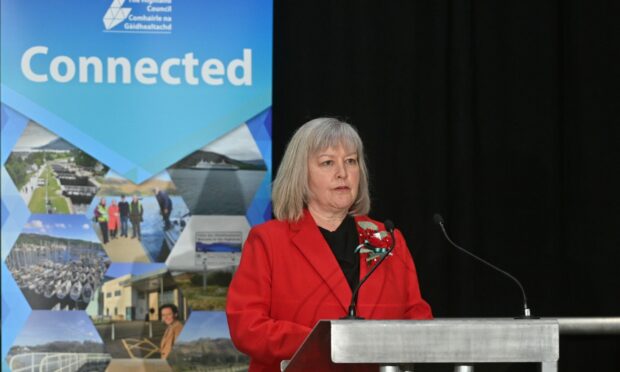Health chiefs fear 200 vulnerable care home residents in the Highlands are currently “at risk” as facilities across the region struggle to stay open.
NHS bosses admit there are “significant challenges” facing a sector already struggling with severe staff shortages and the soaring cost of living.
The Highland area is being hardest hit because of the area’s older population and high number of small and rural care homes, some of which are being put up for sale.
Industry leaders said it was “increasingly not sustainable” for charities and small family-run businesses to run the vital facilities.
They highlighted the impact of Brexit on staffing and a lack of government support.
Social care chiefs in the Highlands warned last year of the “potential collapse” of the sector in parts of the region.
The crisis was discussed again at a meeting of the Highland health and social care governance committee last month.
Chief officer Louise Bussell was asked for a broad idea of the number of care homes and residents at risk.
She said: “It is thought that currently there are close to 200 residents that are in care homes who are exposed to a more vulnerable position.
“There is not anything imminent for any of the homes concerned but there is a need to be mindful of the current risks.”
‘Expectation that a local solution is found’
It was also noted that there had recently been “significant change in some areas that had been thought stable”.
Bosses say they are mapping out where the loss of any more care homes “cannot be afforded”.
The committee was told that while the Scottish Government had an “appreciation of the position”, there was “still an expectation that a local solution is found” in Highland.
It was reported last month that Mo Dhachaidh care home in Ullapool is closing in April, with alternative accommodation being sought for its 14 residents.
Last year, Grandview House in Grantown was shut, impacting 34 residents.
An NHS Highland spokesman said: “There are a small number of care homes for sale within Highland and other homes are experiencing significant challenges due to the current pressures across health and social care, relating to the cost of living.
“Health boards and local authorities across the country are working with independent providers to understand risks and address mitigations to ensure the sustainability of service provision and the safety and wellbeing of residents.”
A spokeswoman for Scottish Care, which represents independent care providers, said care homes were increasingly places offering “highly complex” care and support to people with a range of conditions, many of whom are receiving palliative and end-of-life care.
Brexit led to loss of workforce
She said: “Brexit has led to the loss of many of the social care workforce, with some individuals leaving the sector to work in hospitality and retail, especially in rural and remote areas such as the Highlands.
“This coupled with rising living costs which have included massive energy cost increases, and an already existing crisis in workforce recruitment and retention creates very real pressures on sustainability.
“Scottish Care is concerned that the care home sector is increasingly not sustainable for charities and small family-run businesses, especially in rural and remote areas due to a lack of investment and funding from central and local government. ”
Highlands and Islands Labour MSP Rhoda Grant said the unprecedented pressures in social care are felt “much more in our rural communities”.
“Many care homes throughout the Highlands and Islands are trying their best to ensure that a sustainable level of care is provided to their residents,” she said.
“I am aware that NHS Highland and Highland Council are working strategically to identify the true scale of this problem and to ensure that care homes are supported and that residents, families and the community are continued to be looked after.
“What is apparent is that the Scottish Government do not seem to grasp the precarious situation that care homes are in.”
National campaign to boost recruitment
A marketing campaign to support the recruitment of more adult social care workers was launched last month.
Social Care Minister Kevin Stewart said: “The local authority and health and social care partnership will wish to ensure that in delivering social care they take full account of the need to have safe and sustainable numbers of staff.
“We recognise the issues they have raised and are working closely with partners to ensure the effective and safe delivery of care services.
“We’re running a national campaign to boost recruitment to the centre and are already increasing pay, improving terms and conditions in the sector, and developing clear career pathways, all backed by Fair Work principles, to make social care a more attractive career.
“This will continue with the National Care Service, which will ensure our workforce is supported and rewarded.”





Conversation